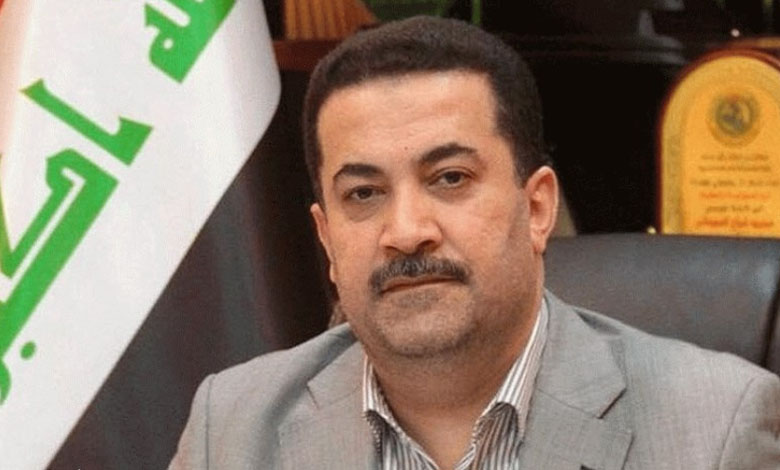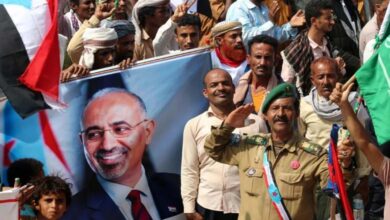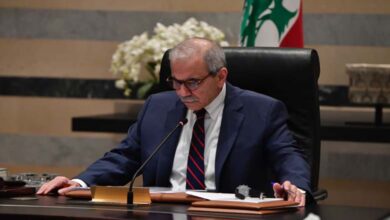Washington doubts the ability of Al Sudani to curb the influence of Iran

The United States is deeply suspicious of the policy that Mohammed Shia’ Al Sudani government will take on a number of issues, most notably the U.S. military role in Iraq, the retrenchment of the Popular Mobilization Forces, and resistance to pressure from pro-Iranian political forces, but it leaves the door open for steps to bolster confidence.
A report by the American “Quincy” institute indicated that fears increased following the dismissal of intelligence chief Raed Juhi by Al Sudani, who was appointed to head the agency by former Prime Minister Mustafa Al-Kadhimi and is described by some Iraqi forces as pro-American.
According to the Iraqi Kurdish website Shafaq News, the institute’s report indicated that there are American fears about Al Sudani’s ability to maintain the cohesion of his government, especially as he is subject to the pressures of the Iranian-aligned coordination framework.
Despite the report’s praise of Al Sudani’s intentions and his lack of involvement in corruption files, especially his knowledge of the Iraqi situation since before the fall of Saddam Hussein’s regime, unlike most politicians who were exiled either in Iran or the West, the report confirmed that there are “fears in Washington and among some of the Shiite, Kurdish, Sunni, and secular political elites in Iraq that Al Sudani will be too weak to resist the tendencies of the coordinating framework allied with Iran, which brought him to power.”
The report stated that American circles hope that Al Sudani will not deviate from the policies of Al-Kadhimi, who sought to take some decisions to limit Iranian influence. This led him to confront political forces allied with Iran, which reached the level of threat, through their armed arms and militias.
The report questions Al Sudani’s ability to curtail the influence of the Popular Mobilization Units, which was officially integrated into the Iraqi forces after they succeeded in defeating the terrorist organization of ISIS. Although the PMF continued to enjoy considerable independence from the government, the report emphasizes Al Sudani’s ability to impose the prestige of the state through its monopoly on violence.
Observers exclude Al Sudani’s success in this regard, as he is supported mainly by political forces allied with Iran. There is, therefore, doubt about his ability to curb the militias, given that he is subject to the dictates of the coordinating framework, which are forces hostile to the United States and managed by Iran to expand its influence in Iraq.
Al Sudani recently took steps to impose the prestige of the state, which raised some reassurance among Iraqis who reject Iranian hegemony. However, these steps remain insufficient.
These include an order ordering officials not to visit or receive foreign delegations that visit the country without permission from the government, and calling for the formation of an investigative committee against any party that does not comply with security clearance in areas freed from ISIS.
The report believes that what disturbs the American side most is Al Sudani’s carrying out some of the dismissals of figures and leaders related to the West, especially the intelligence chief.
Al Sudani had said after he told the head of the Intelligence Agency that he would personally oversee the agency. This step comes at a time when this position was the cause of conflicts and tensions between two factions of the Popular Mobilization Forces, Asaib Ahl Al-Haq and the Iraqi Hezbollah Brigades, during the period when Al Sudani was holding consultations to form his government.
“Despite US concerns, Iraqis believe the dismissal was necessary in compliance with the Supreme Court ruling, which considers that the appointments were temporary and should therefore end with the formation of a new government,” the report said.
The U.S. side looks forward to “continuing the U.S. military mission of providing advice, assistance and empowerment that will help contain and eliminate the residual ISIS threat,” the report said, noting that “talks last week between Al Sudani Foreign Minister Antony Blinken and Iraqi Foreign Minister Naji Sabri led to the need for “mutual adherence to the U.S.-Iraq Strategic Framework Agreement and the shared interest in preserving Iraq’s security, stability and sovereignty.”
Observers believe that Al Sudani is under great pressure from Iran’s allies to review such cooperation in the midst of Western sanctions against Tehran, whether because of its intransigence on the nuclear issue, its suppression of peaceful protests or its provision of marches to Russia for use in the Ukrainian war.
Nevertheless, the Quincy Institute report does not rule out the possibility that Iran’s allies and the PMF might change the status quo regarding the U.S. military presence under the Strategic Framework Agreement.
The report spoke of the most important challenges that will face Al Sudani, including ending the differences with the Sadrist movement to achieve political stability, confronting corruption, and rationalizing public spending, especially the efforts to open up to Arab countries with the aim of “modifying the popular perception about Iranian excessive influence in Iraq, and contributing to strengthening Iraq’s position as an independent player within its regional environment.”
The Sadrist movement refused to appoint Al Sudani government, which is supported by the Coordinating Framework for the government, to head the government. It called for a national government, neither eastern nor western.
Despite Al Sudani’s efforts to communicate with Muqtada Al-Sadr, he failed to do so, especially with the insistence of the Sadrists to refuse to deal with the new Iraqi government, doubting its ability to face corruption and foreign domination.












